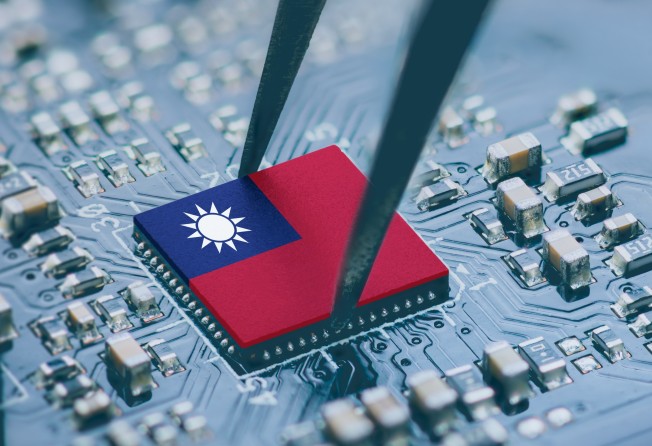Taiwan’s semiconductor sector growth to cool under global inflation pressure, China’s economic slowdown
- Output value for Taiwan’s integrated circuit sector should increase by 15.6 per cent this year, but just 6.1 per cent next year
- Inflation and increased living costs are set to impact demand for PCs and tablets which had boomed during the height of remote working and home study

Growth in Taiwan’s US$127 billion semiconductor industry, a top supplier for the world’s electronic devices, will slow next year as inflation hobbles global consumer sentiment and mainland China faces its own headwinds, market researchers said this week.
Output value for the island’s integrated circuit sector should increase by 15.6 per cent this year, but by just 6.1 per cent next year, the Taiwan government-funded Industrial Technology Research Institute said in a report on Thursday.
Taiwan’s semiconductor revenue will grow in percentage terms by a “single digits” in 2023, said Ben Yeh, Taiwan-based analyst with the Canalys market research firm.
“Smaller companies in the space who do not hold leading market positions are also likely to slow down their capacity expansion plans,” Yeh said.
The market for chips will probably reach US$605.6 billion this year and US$608.6 billion next year, Taipei-based Market Intelligence & Consulting Institute said in a forecast on Thursday, which pointed to poor consumer “buying mood”.
Output value for the chip sector grew by 26.7 per cent in 2021 as consumers snatched up PCs and smartphones for remote working and home study during the coronavirus pandemic, the government-funded research firm said.
But shipments of both devices are now in decline, according to data from Taipei-based market research firm TrendForce.
Continued growth in the output value for Taiwan’s integrated circuit sector next year, though, still reflects demand for newer technology, it said.
“The global economy is in turmoil, but 5G, artificial intelligence and high-performance computing are still creating innovation and business opportunities,” the Industrial Technology Research Institute report said.
Developers of consumer electronics – companies that range from the Silicon Valley to mainland China – regularly order semiconductors from Taiwanese firms.
But high levels of inflation, plus increased living costs, will hobble demand for PCs and tablets, market research firm IDC said in June.
In September, Taiwan’s industrial output fell for the first time in more than two and a half years, signalling trouble in major world markets that traditionally rely on the technology hardware hub as well as for other export-reliant Asian economies.
Mainland China, which is normally the world’s biggest buyer of smartphones by volume, faces slow growth that has cramped purchases, TrendForce said.
China’s economy is grappling with property debt, higher tariffs on US-bound exports and virus containment under its zero-Covid policy.
Smartphone brands have been “forced to lower their production targets” in the second half of 2022 because of pandemic controls in China, TrendForce said at the end of August.
A “prolonged slowdown” in mainland China would impact other Northeast Asian economies that are exposed to Chinese demand, Moody’s Investors Service said on Wednesday.
In the wider chip production space, Japan, South Korea, the United States and Europe are all striving for “autonomy”, the Industrial Technology Research Institute report added.